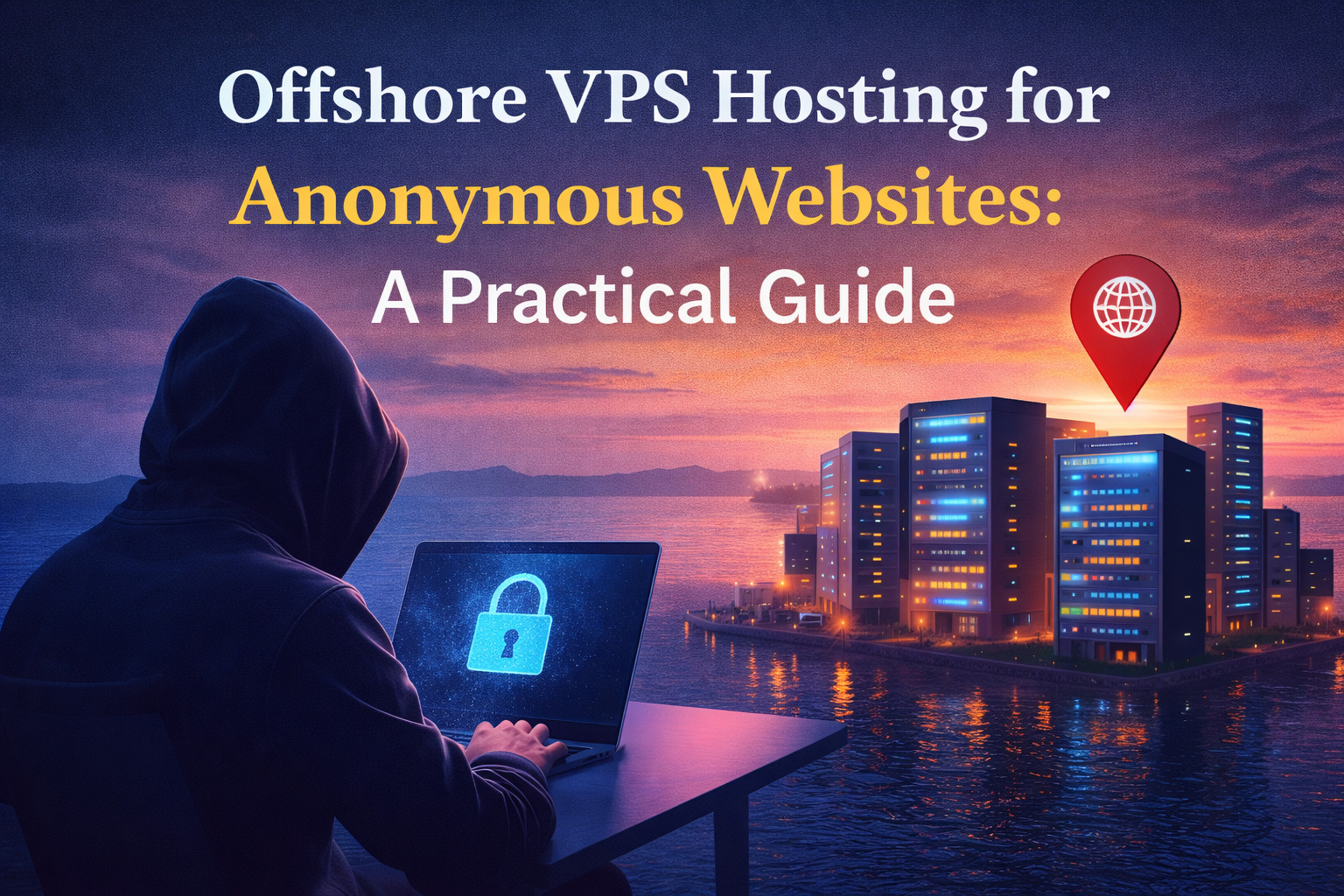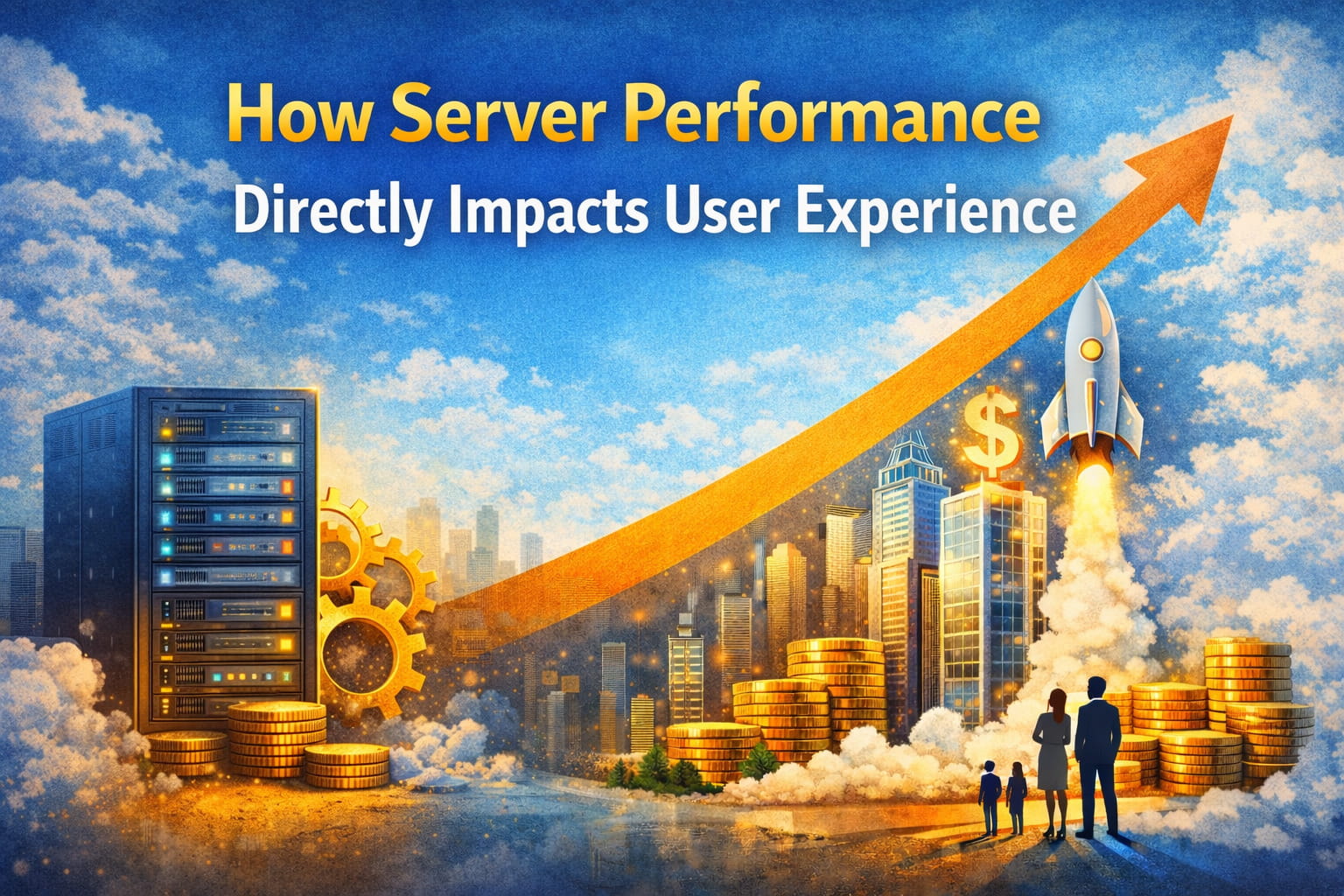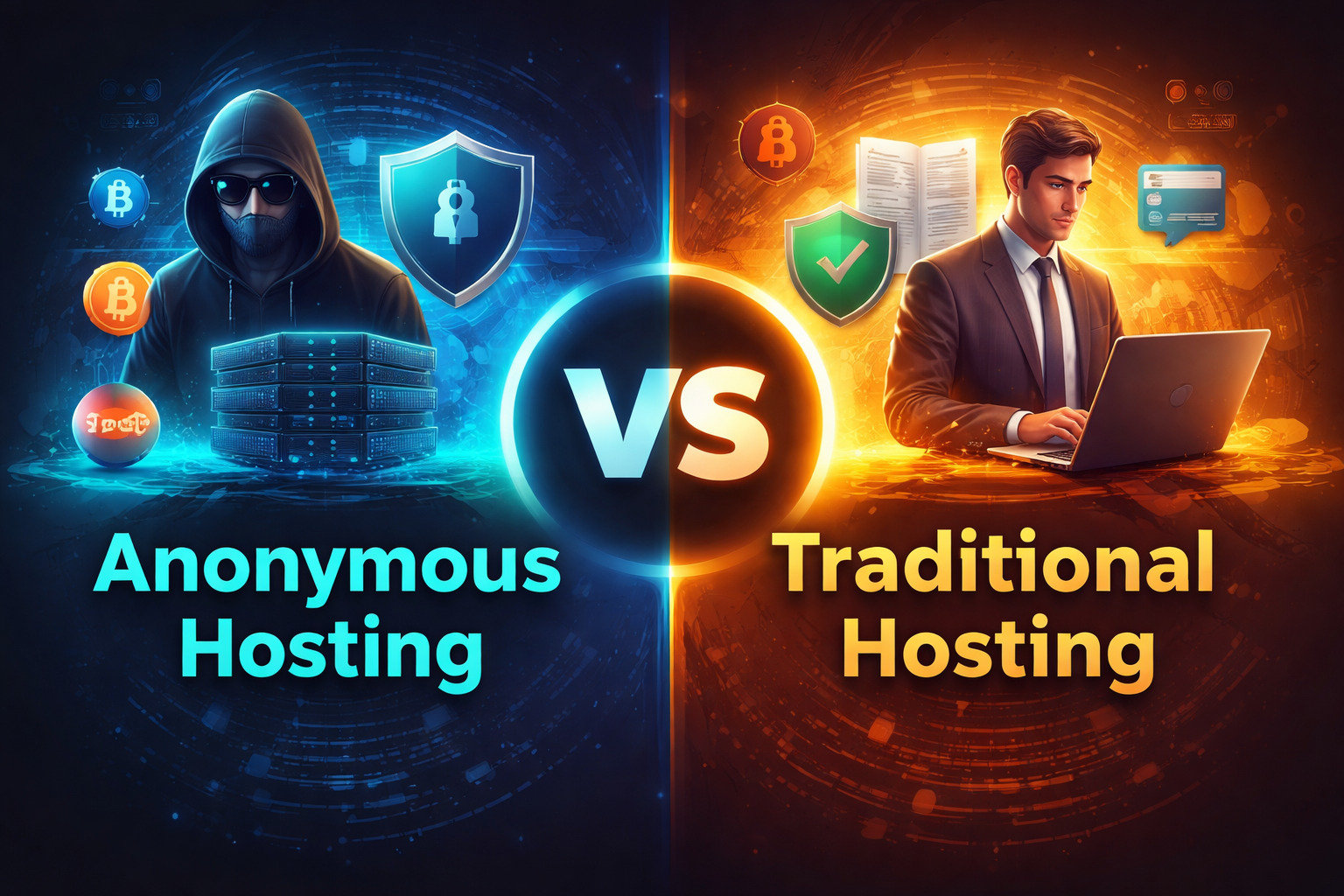VPS vs Shared Hosting: Which Is Best for Your Website (Beginners Guide)

- November 20, 2025
- 1 Comment

If you are starting a website, choosing the right hosting is one of the most important decisions you’ll make. Your choice affects how fast your website loads, how reliable it is, and how safe it is from security problems.
Two of the most popular hosting types are Shared Hosting and VPS Hosting. Shared hosting is usually the cheaper, entry-level option, while VPS hosting gives you more power, control, and flexibility.
Making the right choice can save you headaches in the future. The wrong hosting can slow down your site, cause security issues, or even force you to migrate at the wrong time. In this article, we will explain both types in detail, compare them, and help you decide which one is right for your website. We’ll also show why LunarVPS could be a great choice if you want VPS hosting.
What Is Shared Hosting?
Shared hosting is like living in an apartment building. Multiple websites live on the same server and share the server’s resources like CPU, RAM, and storage.
The hosting company takes care of the server, so you don’t have to worry about maintenance, updates, or security. You usually work through a control panel like cPanel instead of managing the server directly.
Shared hosting is perfect for beginners because it is simple and affordable, but it comes with limitations. Understanding these limitations will help you know when it’s time to upgrade to VPS.
Key Features of Shared Hosting
- Affordable: Resources are shared, keeping costs low. This makes it ideal for small websites.
- Managed for you: The hosting provider handles maintenance and security updates.
- Limited control: You can’t make major changes to the server configuration.
- Shared resources: If other websites on the server get traffic spikes, your website might slow down.
- Basic security: While providers implement security measures, sharing resources means your site can be indirectly affected by other sites.
Who Should Use Shared Hosting?
- Beginners who are just starting a website
- Small businesses with low to medium traffic
- Personal blogs, portfolios, or hobby websites
- Anyone who wants simple setup without managing servers
Shared hosting is perfect for testing ideas or running small websites that don’t need high speed or advanced features. It’s simple, quick to set up, and requires almost no technical knowledge.
What Is VPS Hosting?
VPS (Virtual Private Server) hosting is like living in your own house inside a larger property. A physical server is divided into virtual servers, and each VPS has its own dedicated resources.
VPS gives you more power and control compared to shared hosting. You get your own space and can install your preferred software, choose the operating system, and make custom server changes.
VPS is ideal for websites that are growing, need more performance, or require advanced features.
Key Features of VPS Hosting
- Dedicated resources: Your CPU, RAM, and storage are reserved for your website, so performance is more consistent.
- Isolation: Other websites on the same server won’t affect your site.
- Full control: You can install software, manage security, and configure the server to your needs.
- Scalable: Increase resources like RAM or storage as your website grows without migrating to a new server.
- Better security: VPS is more secure because each server is isolated.
- Flexible plans: VPS hosting can range from entry-level setups to very high-performance servers.
- Managed or unmanaged: You can choose to manage the server yourself or let the host handle updates, security, and maintenance.
Who Should Use VPS Hosting?
- Growing businesses or high-traffic websites
- E-commerce websites that handle payments and sensitive data
- Developers who need full control of their server environment
- Websites that require custom software or server configurations
VPS is ideal for long-term growth. It gives you the flexibility to expand resources as your website traffic increases without compromising speed or reliability.
Shared Hosting vs VPS Hosting: Key Differences
1) Speed and Performance
- Shared hosting: Performance can fluctuate because server resources are shared with multiple websites. High traffic on other sites can slow your site down.
- VPS hosting: Your resources are dedicated, so your website performs consistently even under heavy traffic.
Verdict: VPS is better for business-critical websites, e-commerce, and fast-growing blogs.
2) Scaling Your Website
- Shared hosting: Limited scalability. As your traffic grows, you may need to switch plans or move to VPS.
- VPS hosting: Resources can be increased easily. You can scale CPU, RAM, and storage without downtime in most cases.
Verdict: VPS is better if you plan to grow your website over time.
3) Control and Customization
- Shared hosting: Limited control. You must use the software and setup provided by your hosting company.
- VPS hosting: You get root access to the server, allowing you to install custom software, choose the operating system, and configure the server for your needs.
Verdict: VPS is ideal for users who need flexibility or advanced setups.
4) Security
- Shared hosting: Security depends on the hosting provider. A problem on one website can sometimes affect other websites on the server.
- VPS hosting: VPS environments are isolated, meaning issues on other websites do not affect your server. You can also implement additional security measures.
Verdict: VPS is better for websites handling sensitive information or payments.
5) Technical Skills Needed
- Shared hosting: Minimal technical knowledge is required. Everything is handled by the provider.
- VPS hosting: Unmanaged VPS requires technical skills, while managed VPS lets you enjoy the benefits without the technical work.
Verdict: Managed VPS is suitable for users who want power without the complexity.
Use Cases: Which Hosting Fits Your Website?
| Scenario | Best Option | Why |
|---|---|---|
| Personal blog, portfolio, or hobby site | Shared Hosting | Simple, affordable, and easy to use |
| Growing small business website | VPS Hosting | Better speed, control, and scalability |
| E-commerce website | VPS Hosting | Secure, reliable, and high performance |
| Development or testing server | VPS Hosting | Full control and flexibility |
| Side projects or experimental sites | Shared Hosting | Simple setup without high cost |
Challenges of VPS Hosting
VPS hosting is powerful but comes with responsibilities:
- Technical knowledge required: Unmanaged VPS needs server management skills.
- Resource planning: Allocating too few or too many resources can affect performance or efficiency.
- Security responsibility: You must handle updates, firewalls, and backups.
- Hardware dependency: VPS relies on the physical server, so backups and redundancy are essential.
Despite these challenges, VPS is often the best option for websites that plan to grow or need reliable performance.
Moving from Shared Hosting to VPS
If your website is outgrowing shared hosting, here’s how to move to VPS:
- Backup all files, databases, and configurations.
- Clean up your website to remove unnecessary files or plugins.
- Choose a VPS plan suitable for your current and future needs.
- Plan for DNS changes and potential downtime during migration.
- Monitor your website performance after migration.
- Set up firewalls and other security measures.
Migrating to VPS may seem intimidating, but careful planning ensures minimal downtime and a smooth transition.
Why LunarVPS?
LunarVPS offers VPS hosting that is simple, reliable, and flexible:
- Reliable performance: Dedicated resources ensure your website runs smoothly.
- Scalable plans: Increase CPU, RAM, and storage as your website grows.
- Full control: Customize your server, install software, and configure settings.
- Better security: VPS isolation protects your data.
- Managed options: Let us handle updates, backups, and maintenance if you prefer.
- High uptime: Reliable data centers minimize downtime and keep your website accessible.
Whether you are a beginner looking for guidance or a developer needing control, LunarVPS can support your website growth.
| Feature | Shared Hosting | VPS Hosting | Notes |
|---|---|---|---|
| Performance | Shared resources; may slow down during traffic spikes | Dedicated resources; consistent performance | VPS handles growing traffic better |
| Control | Limited; must use provider’s software and settings | Full control; can install custom software and configure server | VPS allows custom setups and advanced applications |
| Security | Basic; may be affected by other websites | Stronger; isolated environment reduces risks | VPS is better for sensitive data |
| Scalability | Limited; upgrading often requires migration | Easy; resources can be increased without downtime | VPS supports growth smoothly |
| Technical Knowledge | Minimal; mostly plug-and-play | Unmanaged requires skills; managed reduces technical burden | Managed VPS is beginner-friendly |
| Cost | Affordable | Higher than shared, but value grows with resources | VPS is an investment in performance and security |
| Best For | Small blogs, portfolios, hobby sites | Growing businesses, e-commerce, high-traffic sites | Use case determines choice |
Common Myths About Hosting
- “VPS is just expensive shared hosting.” VPS provides real benefits like dedicated resources, isolation, and control.
- “Shared hosting is unsafe.” Many shared hosting providers have strong security, but VPS naturally provides stronger isolation.
- “VPS is too difficult to manage.” Managed VPS lets you enjoy all VPS advantages without technical stress.
Best Practices for VPS Hosting
- Keep your server and software updated regularly.
- Use strong passwords and firewalls.
- Take regular backups to prevent data loss.
- Monitor CPU, RAM, and storage usage to avoid issues.
- Disable unnecessary services for better performance and security.
- Regularly review your website performance to adjust resources as needed.
Frequently Asked Questions (FAQs)
Q1: What is the main difference between shared hosting and VPS hosting?
Shared hosting uses one server for multiple websites, sharing resources like CPU, RAM, and storage. VPS hosting uses virtualization to create separate virtual servers, giving each website dedicated resources, better performance, and more control.
Q2: Which hosting is better for small websites?
Shared hosting is usually better for small websites, personal blogs, and portfolios because it is simple, affordable, and requires little technical knowledge.
Q3: When should I upgrade from shared hosting to VPS?
Consider upgrading when your website starts receiving higher traffic, requires faster loading speeds, needs better security, or demands custom server configurations.
Q4: Is VPS hosting difficult to manage?
Unmanaged VPS requires technical skills, but managed VPS plans let you enjoy all the benefits of VPS hosting without handling server maintenance, updates, or security tasks.
Q5: Can VPS hosting improve website speed?
Yes. VPS hosting provides dedicated resources, which ensures faster and more consistent performance compared to shared hosting, especially during traffic spikes.
Q6: Is VPS hosting more secure than shared hosting?
Yes. VPS isolates your website from others on the server, reducing the risk of security issues caused by neighboring sites. You also have more control to implement additional security measures.
Q7: Can I scale VPS hosting as my website grows?
Absolutely. VPS allows you to increase CPU, RAM, and storage without migrating to a new server, making it ideal for growing websites or businesses.
Q8: Which hosting option is more cost-effective in the long run?
Shared hosting is cheaper upfront, but VPS can be more cost-effective for growing websites because it provides better performance, security, and scalability, reducing the need for frequent upgrades or migrations.
Q9: Can I run custom software on shared hosting?
No. Shared hosting limits your ability to install custom software or change server settings. VPS hosting gives you full control to run applications and make configurations.
Q10: Is LunarVPS suitable for beginners?
Yes. LunarVPS offers both managed and unmanaged VPS options. Managed VPS is beginner-friendly, providing all the benefits of VPS without requiring technical skills.
You Might Also Like This:
Conclusion:
Shared hosting is affordable, easy to use, and perfect for small websites or beginners. VPS hosting offers more speed, control, security, and flexibility, making it ideal for growing businesses, high-traffic sites, and e-commerce stores.
With LunarVPS, you get reliable VPS hosting with options for both managed and unmanaged services. This makes it easy to grow your website while ensuring strong performance, security, and control.
Choosing the right hosting is about your website’s needs today and in the future. Starting with shared hosting is fine for beginners, but VPS is the smarter long-term choice for serious websites.





Comments
How To Host Your Website Anonymously – Complete Guide For Beginners – Blog | LunarVps
[…] VPS vs Shared Hosting: Which Is Best for Your Website […]